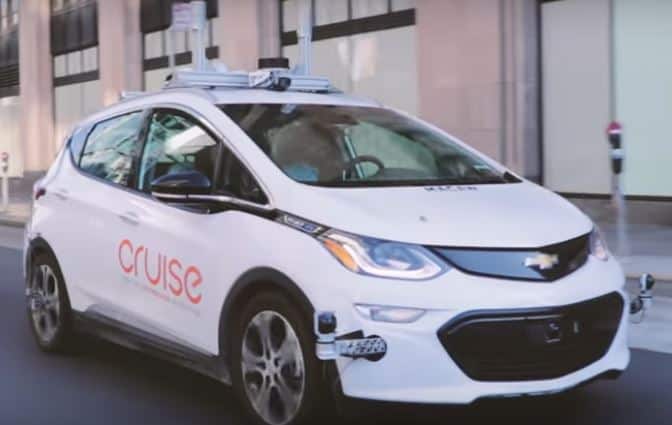 The Henry Ford announced the acquisition of one of General Motors’ first self-driving test vehicles. Originally making its debut testing on the streets of San Francisco in 2016, the car marked a significant step in the development of self-driving technology and was one of GM’s first test vehicles to operate on public roads autonomously. The vehicle represents a milestone for The Henry Ford as well. It is the first autonomous car to be added to the museum’s collection.
The Henry Ford announced the acquisition of one of General Motors’ first self-driving test vehicles. Originally making its debut testing on the streets of San Francisco in 2016, the car marked a significant step in the development of self-driving technology and was one of GM’s first test vehicles to operate on public roads autonomously. The vehicle represents a milestone for The Henry Ford as well. It is the first autonomous car to be added to the museum’s collection.
“Self-driving capabilities will fundamentally change our relationship with the automobile,” said Patricia Mooradian, president and CEO, The Henry Ford. “As the home of the historic vehicles that have shaped that relationship today, this acquisition is paramount in how we tell that story in the future.”
The self-driving test vehicle is a modified pre-production Chevrolet Bolt EV and was developed in close collaboration with Cruise Automation, a software start-up acquired by GM in March 2016. It is equipped with cameras, radar and LIDAR sensors as well as an on-board computer. The sensing system and compute platform allow the vehicle to observe the world around it in 360 degrees and make near real-time decisions to navigate the road safely. By the summer of 2016, more than 40 test vehicles were navigating the streets of San Francisco, Calif., and Scottsdale, Ariz.
“Autonomous vehicles will change people’s lives forever, just as the automobile itself did more than a hundred years ago,” said Mark Reuss, president of General Motors. “The Henry Ford is a treasured institution where past and present innovations are documented and displayed, and GM is proud to provide our autonomous test vehicle to serve as an inspiration to the innovators of tomorrow.”
Self-driving cars are a longstanding idea. The first serious experiments date as far back as the mid-1920s. General Motors itself has experimented with the technology several times. Its popular “Futurama” exhibit at the 1939 New York World’s Fair imagined automated highways guiding cars by radio control. And in the 1950s, GM and RCA built a section of test road equipped with electromagnetic circuits to control vehicles along the route. Building on its work with the 2016 test vehicles, GM and Cruise Automation are now working on the Cruise AV the first production-intent self-driving car without manual controls of any kind. Industry leaders and analysts largely agree that autonomous vehicles are coming to the consumer market. It’s not a matter of if, but of when.
“The self-driving vehicle is the most fundamental shift in what a car should be since the Model T turned the automobile into an everyday item,” said Matt Anderson, curator of transportation at The Henry Ford. “While this first-generation test vehicle was quickly followed by more advanced versions, it made a bold statement that a major automanufacturer was ready to move quickly on making self-driving cars a reality.”
The vehicle is now on display next to the 1959 Cadillac El Dorado near the entrance of the Driving America exhibit inside Henry Ford Museum of American Innovation.